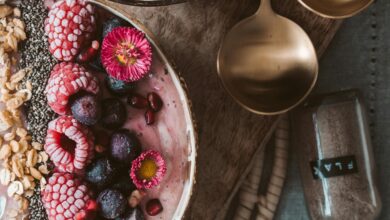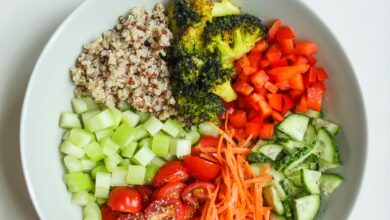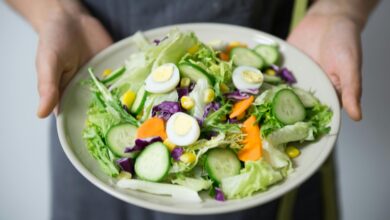Understanding the Link Between Diet and Skin Health: The skin is the body’s largest organ, serving as a protective barrier against environmental stressors and external toxins. Its health and appearance are influenced by various factors, including genetics, lifestyle habits, and dietary choices. What we eat can directly impact the skin’s structure, function, and overall appearance, making nutrition an essential aspect of skincare.
Key Nutrients for Skin Health:
- Antioxidants: Antioxidants play a crucial role in protecting the skin against oxidative stress and free radical damage, which can contribute to premature aging and skin dullness. Foods rich in antioxidants, such as fruits (berries, citrus fruits), vegetables (spinach, kale, bell peppers), and nuts (walnuts, almonds), can help combat inflammation, promote collagen production, and maintain skin elasticity.
- Omega-3 Fatty Acids: Omega-3 fatty acids, found in fatty fish (salmon, mackerel, sardines), flaxseeds, chia seeds, and walnuts, are essential for maintaining skin hydration, reducing inflammation, and supporting healthy cell membranes. Incorporating omega-3-rich foods into your diet can help improve skin texture, reduce acne, and enhance overall skin health.
- Vitamins: Several vitamins play a vital role in skin health, including vitamin A, vitamin C, vitamin E, and vitamin D. Vitamin A promotes skin cell turnover and regeneration, vitamin C boosts collagen production and brightens the skin, vitamin E acts as a potent antioxidant, and vitamin D supports skin barrier function and immune response. Foods such as carrots, sweet potatoes, citrus fruits, nuts, seeds, and fatty fish are excellent sources of these essential vitamins.
- Hydration: Adequate hydration is essential for maintaining skin moisture levels, supporting detoxification, and promoting a healthy complexion. Drinking plenty of water throughout the day helps flush out toxins, improve skin elasticity, and prevent dryness and dehydration. Additionally, consuming hydrating foods such as watermelon, cucumber, and leafy greens can contribute to overall skin hydration.
- Protein: Protein is essential for building and repairing skin tissues, collagen synthesis, and maintaining skin firmness and elasticity. Incorporating lean sources of protein such as poultry, fish, tofu, legumes, and dairy products into your diet can support skin health and promote a youthful appearance.
The Impact of Dietary Habits on Skin Beauty:
In addition to specific nutrients, dietary habits and lifestyle factors can also influence skin health and appearance. Adopting a balanced, nutrient-rich diet and practicing healthy eating habits can have a profound impact on skin beauty.
- Avoiding Processed Foods: Processed foods high in sugar, refined carbohydrates, and unhealthy fats can contribute to inflammation, acne, and skin aging. Opt for whole, minimally processed foods such as fruits, vegetables, whole grains, and lean proteins to support skin health.
- Limiting Dairy and Sugar Intake: Dairy products and high-glycemic foods have been linked to acne and skin inflammation in some individuals. Consider reducing your intake of dairy products and sugary foods and beverages to help improve skin clarity and reduce breakouts.
- Managing Stress: Chronic stress can disrupt hormonal balance, increase inflammation, and exacerbate skin conditions such as acne, eczema, and psoriasis. Practice stress-management techniques such as meditation, yoga, deep breathing exercises, and adequate sleep to promote overall well-being and skin health.
- Protecting Against Sun Damage: Exposure to ultraviolet (UV) radiation from the sun can accelerate skin aging, cause sunburn, and increase the risk of skin cancer. Wear sunscreen daily, seek shade during peak sun hours, and wear protective clothing to shield your skin from harmful UV rays.



